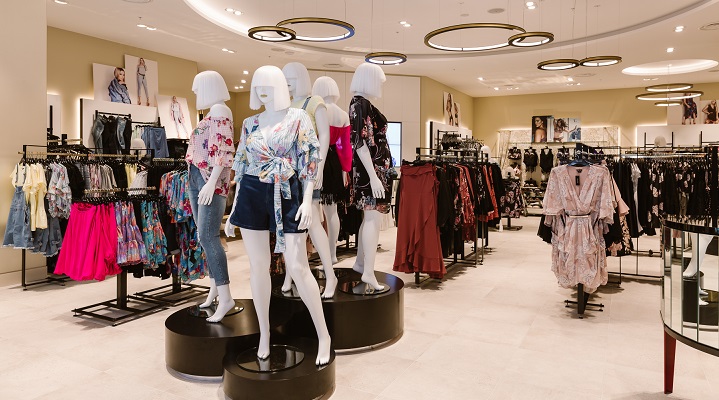City Chic is well known for the rapid sales growth, solid financials and strong digital business that have enabled the plus-size women’s fashion chain to enter new markets, acquire rivals and attract investors since splitting from Specialty Fashion Group in 2018. But what about the information technology (IT) underpinning the retailer’s omnichannel success?
In a world of livestreaming, augmented reality and smart mirrors, IT can feel like the unsexy side of retail tech, but without the foundation of a reliable internet connection in stores, none of the headline-grabbing features would work.
“These days, stores are so interconnected — from click-and-collect to back-of-scene payroll operations — it requires a solid infrastructure,” Stuart Kegg, City Chic’s head of IT, told Inside Retail.
But that is easier said than done. Between the inherent connectivity issues in most shopping centres, and the bandwidth and uptime required for everything from video walls to buy now pay later (BNPL) to click-and-collect and endless aisle solutions, networks have never been under greater strain.
An unexpected cost of BNPL
“We would have some sort of network outage on a daily basis,” Kegg said. “It can be as simple as someone digging a cable up on a street.”
That’s why City Chic, like most retailers, has a redundancy plan in place, so if there is an outage, stores can seamlessly switch to a backup network and continue operating.
“They don’t even know they’re on it,” he said.
It used to be that retailers could continue taking payments even if the internet went down, because EFTPOS machines could store transactions in the terminal and upload them when they came back online. But that’s not the case with BNPL solutions, such as Afterpay, ZipPay and Klarna, which require the internet to work.
“Buy now pay later has made a significant difference in the strain on infrastructure in stores,” Klegg said.
So have omnichannel services, such as click-and-collect and endless aisle.
“All that relies on networks being available. Retailers are more and more dependent on stores being connected, and the downside is that security becomes a much greater challenge. You need to be more cautious.”
The problem with shopping centres
One of the other major challenges retailers like City Chic face is poor connectivity in shopping centres, where most of their stores are located.
This is due to a combination of factors, according to Kegg, including ageing architecture and lack of documentation needed to connect store networks to the main infrastructure.
“Centres generally have woeful documentation,” Kegg said.
On top of this, networks tend to be set up in the back of stores, so signal strength can be weak where shoppers spend most of their time — in walkways and aisles. And when shopping centres are crowded, on Saturday mornings for instance, connections suffer from network flooding.
Kegg also noted that there’s a growing trend of shopping centres providing network infrastructure as part of their lease agreements, which might restrict the choice of telecommunications carrier and cause problems for retailers that have multiple sites.
It’s all about the customer
When outages do occur, store staff are generally not equipped to deal with them.
“Turning it off and back on is the limit of what we’d expect our store staff to be able to do. That’s why we have proactive monitoring,” Kegg said.
“It’s extremely rare that we need to do any on-site visits. The majority of the time, we can deal with issues remotely.”
This is important because when City Chic split from Specialty Fashion Group, the size of the IT went from around 40 to three.
“We run a very tight team here, so we focus on services where we add value to the business,” he said.
While store connectivity is vitally important, it’s something City Chic has chosen to outsource to Exetel, an internet service provider.
“It is exciting to be partnering with such a dynamic, forward looking retailer,” said James Linton, Exetel’s head of sales, noting that the company shares many of the same values as City Chic.
A focus on the customer is chief among them. While Kegg doesn’t deal with City Chic’s customers directly, he firmly believes a solid IT foundation impacts the customer experience.
“It’s part of the customer experience,” he said. “We’re competing these days against so many businesses online, and from a store perspective, we need to present a seamless interaction.”






